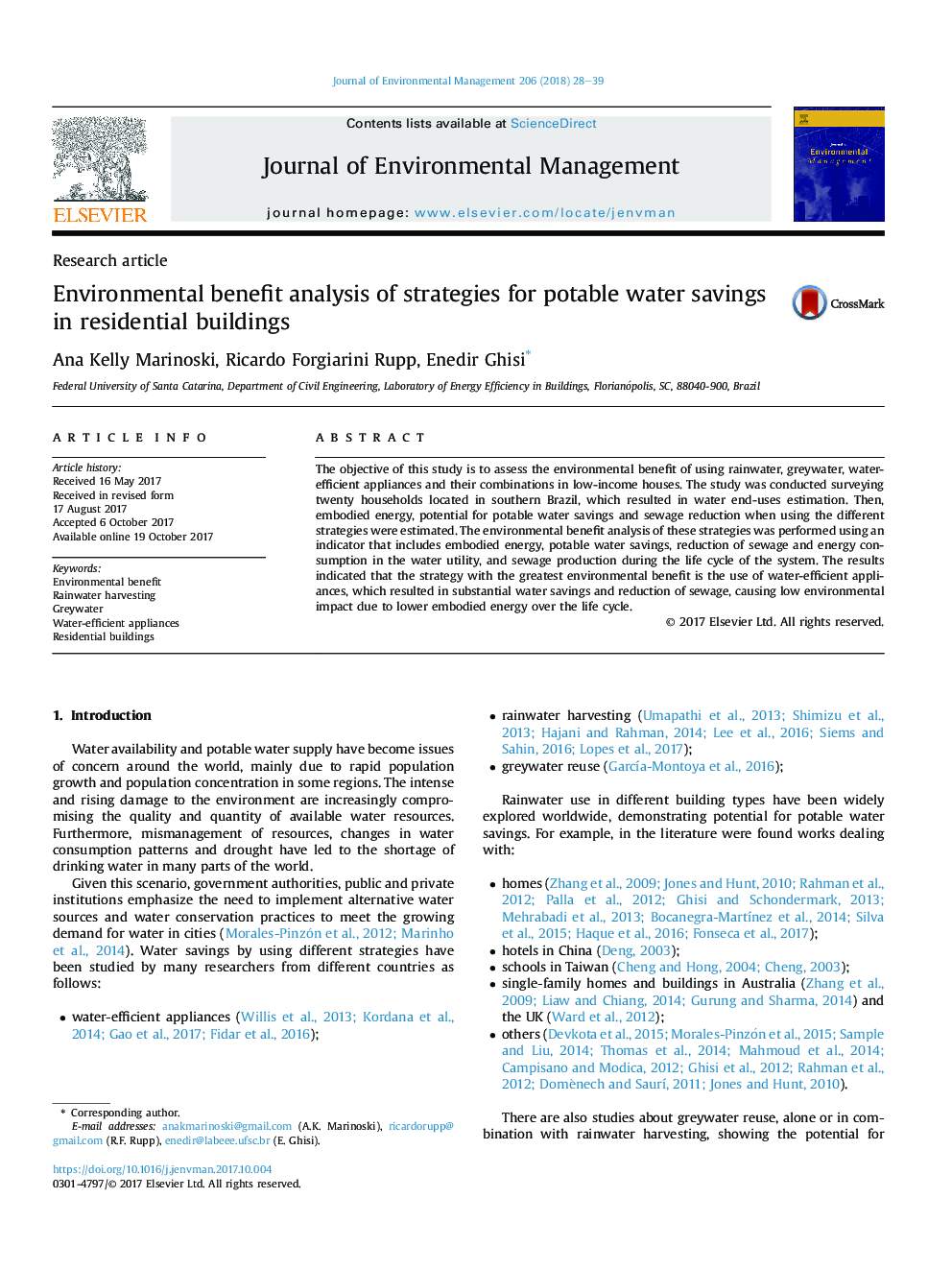| Article ID | Journal | Published Year | Pages | File Type |
|---|---|---|---|---|
| 7478524 | Journal of Environmental Management | 2018 | 12 Pages |
Abstract
The objective of this study is to assess the environmental benefit of using rainwater, greywater, water-efficient appliances and their combinations in low-income houses. The study was conducted surveying twenty households located in southern Brazil, which resulted in water end-uses estimation. Then, embodied energy, potential for potable water savings and sewage reduction when using the different strategies were estimated. The environmental benefit analysis of these strategies was performed using an indicator that includes embodied energy, potable water savings, reduction of sewage and energy consumption in the water utility, and sewage production during the life cycle of the system. The results indicated that the strategy with the greatest environmental benefit is the use of water-efficient appliances, which resulted in substantial water savings and reduction of sewage, causing low environmental impact due to lower embodied energy over the life cycle.
Related Topics
Physical Sciences and Engineering
Energy
Renewable Energy, Sustainability and the Environment
Authors
Ana Kelly Marinoski, Ricardo Forgiarini Rupp, Enedir Ghisi,
